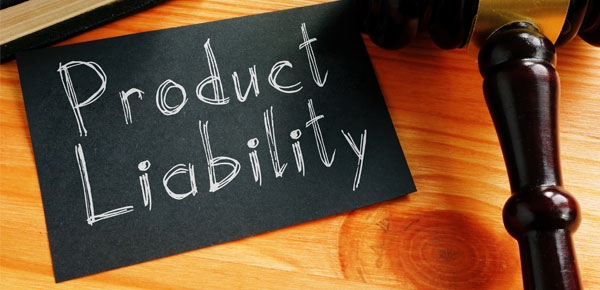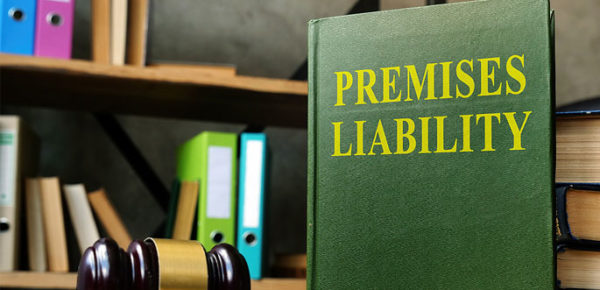The Statute of Limitations in Auto Accident Cases: What You Should Know
If you’ve been in an auto accident, recovering your losses becomes a priority. One of the first questions you may have after a car accident is, “How long do I have to file a lawsuit and seek compensation?” And the answer to that question is simple; If you delay taking legal action, it may result in you forfeiting your right to recover your losses. This is because taking any legal action comes with a statute of limitations. This article will cover what statutes of limitations are and what you need to do to avoid forfeiting your right to fair compensation.
What is the Statute of Limitations?
The statute of limitations is the prescribed time limit to bring certain kinds of legal action in order to seek remedy for financial losses, damages, injuries, and pain and suffering. Statutes of limitations are important because they provide an avenue to seek legal remedies in a timely manner and to ensure the preservation and viability of evidence. Failing to adhere to the statute of limitations regarding your specific case may result in the forfeiture of your right to seek corrective legal action, such as filing a lawsuit or seeking a monetary settlement.
Personal injury lawsuits and the statute of limitations
In the case of personal injury lawsuits after an auto accident, the statute of limitations is very important to both the injured party and the alleged at-fault driver.
For the alleged at-fault motorist, it protects them from unjust prosecution years after an accident when the evidence is no longer viable and injuries are near impossible to prove that they were a direct consequence of an auto accident.
When it comes to the injured party, the statute of limitations helps them to prove that any injuries or losses resulted from the car accident by ensuring the evidence has not become unviable, witnesses can be located, and damages can be linked to the accident. It also helps them to quickly start a case to recover any financial losses.
Time Limits for Filing an Auto Accident Claim for an Adult
In the State of California, the statute of limitations in car accidents for adults is 2 years. Adults are barred from filing a lawsuit after the 2 years have expired.
This is because of several factors, including the inability to accurately link injuries to the auto accident. It also takes into question why the alleged victim waited so long to file a claim, especially since two years is already considered more than sufficient time needed to decide whether or not a claim is warranted.
Time Limits for Filing an Auto Accident Claim for a Minor
The statute of limitations for a minor involved in an auto accident is different than for adults. Minors have until the day they turn 18 to take legal action.
Minors have until they turn 18 to ensure they have enough time to understand the extent of their losses and injuries and to ensure they have time enough to contact a qualified auto injury attorney to receive adequate legal action. The reason for this extended period falls under the legal requirements for age-related mental competence. At the time of an accident, minors may not fully understand the impact the accident is going to have on the rest of their lives.
What Happens When the Statute of Limitations Expires?
Simply put, once the statute of limitations has expired, the victim of an auto accident may no longer file a lawsuit or seek any legal action.
Essentially, the statute of limitations is considered to be a deadline for filing a civil claim or criminal lawsuit after a car accident. If your claim is not filed within the stated lawful limitations, you have forfeited your rights to file a claim for just compensation.
This is because of the fact that the law understands that evidence becomes null and void after a certain amount of time. Why? Because witnesses may not be able to be located, links to the accident become difficult to make, and memories of the incident may fade away.
Are there exceptions to the statute of limitations?
There are some exceptions to the statute of limitations other than being a minor. One such exception may be granted if the alleged victim of the accident was in jail or prison on unrelated charges during the 2-year period to file a lawsuit. While this isn’t always the case, it has been granted under some circumstances.
Another exception is being out of state. In rare circumstances, being out of state causes the statute of limitations to be “tolled” or, paused, until the individual has been released or returns to the state.
What are the consequences of filing a claim after the statute of limitations has expired?
Typically, if a claim is filed after the statute of limitations has expired, it is dismissed by the judge. This means that regardless of the extent of the injuries, may they be severe or lifelong, a delay in filing a claim can result in total forfeiture of any monetary compensation. It is for this reason above all else that it is crucial that you speak with an experienced personal injury attorney right away.
While it is unethical, depending on the seriousness of the injuries and the significance of the losses and damages, an insurance company may attempt to delay the claims process in the hopes of the statute of limitations expiring in order to get out of paying a settlement or going to trial. While these situations may be rare, they can occur, giving you yet another reason to rely on the skills and expertise of an experienced car accident lawyer to help ensure you do not become a victim a second time.
How to Protect Your Rights
Taking prompt action as soon as you are able to after an auto accident is paramount to protecting your rights. Seek medical attention, report the accident, and consult with an attorney right away. These three things should be the first and most important things you do.
Aside from these three initial steps, there are several more things you can do to help ensure that your rights are protected. One of which is to preserve any evidence that may help your case.
Tips for preserving evidence and information
First, you should always try to gather contact information from the other driver, as well as collect contact information and statements from witnesses to the accident.
Second, document all of your medical treatments, visits, and bills. This includes documenting your rehabilitation, from physical therapy appointments and fees to personal strides you are making at home.
Third, keep all records pertaining to your financial losses. This includes any losses that relate to the accident, no matter how big or small.
The role of your attorney in protecting your rights
Your attorney will play one of the biggest roles when it comes to protecting your rights. He or she will advise you on the best course of action, help document your medical and recovery journey, handle the other driver’s insurance company, and explain to you all of your legal options.
Hiring a lawyer is the best way to protect your rights and ensure you will get the most compensation that is fair and equal to your injuries, financial losses, damages, and pain and suffering.
Conclusion
The statute of limitations is the period you have to file a claim or take any legal action after a car accident. In California, the period is two years. There are exceptions for minors and those who are incarcerated or out of state. Failure to file a claim within two years, barring any exceptions, will forfeit your right to compensation.
If you’ve been in an auto accident in California, contact Pyramid Legal today. We will schedule a free consultation and explain your legal options to you.


























